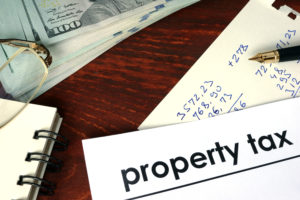Philadelphia’s Ten Year Tax Abatement Program has been in place for almost twenty years. It was instituted to spur new development and re-development, by exempting, for ten years, the value of any improvements to real estate. Over the past few years, many new or recent home buyers in Philadelphia with ten year abatements, have opened their mail to find a very unpleasant surprise. Though they bought their property subject to a 10-year tax abatement, they hold in their hand a notice from the City indicating their tax bill has increased by 300% or more. But their total assessed value hasn’t gone up, so why do they owe so much more? Then they compare to their previous year’s notice, and find that a significant portion of their assessed value has been shifted from ‘Improvement’ Value to ‘Land’ Value.
Philadelphia’s 10 year tax abatement for new residential construction, exempts from taxation “that portion of the assessment valuation attributable to the cost of construction of the new eligible dwelling unit.” This means that for a 10 year period, qualifying properties will only be taxed on the land value of their property, and not on the value of any improvements. There are similar abatements for new commercial construction, and renovations to residential and commercial properties.
The reasoning behind the Abatement Program is simple: if the City temporarily removes an additional cost for those who buy new homes (or business properties), demand will increase and developers will be motivated to build new construction or renovate dilapidated and outdated structures. This in turn spurs additional development in many neighborhoods and increases the city’s tax revenues in other ways. And the Program works. There are plenty of studies that show this setup has been a win-win-win for Philadelphia home buyers, the City’s tax revenues, and developers.
However, it’s becoming less of a win for the new homeowners who have received one of these notices showing a massive increase in their land value. How is the land under their home now worth 3 to 12 times more per square foot than the sale price for the vacant lot next door? It doesn’t seem fair. They want to appeal, but are often unfamiliar or intimidated by the system.
And many of those who do file an appeal are then advised that they cannot appeal just the land value, or that the appeal may even result in an increase in their assessment. Most accept this to be true and decide that even though it doesn’t seem right, it’s not worth the time and effort to continue with the appeal. Those that do pursue the appeals to a hearing, often feel like they are being taken advantage of, that they are being discouraged from exercising their right to appeal, and that the system is both wrong and unfair.
Now, the courts are starting to agree. In a recent Court of Common Pleas case where a property owner appealed the increase in the taxable land value of his property under the 10 Year Abatement Program, a Kensington homeowner received a favorable decision that lowered his assessed land value from $113,500 to $79,000. This reduction will save the property owner hundreds of dollars a year on his property tax bill over the duration of the 10 year abatement.
We’re glad to see this progress being made. Based on our long history helping many clients navigate the 10 Year Tax Abatement Program, we also believe that the land value increases are not appropriate. We have a number of legal arguments and valuation strategies that we believe support the unfairness an inappropriateness of these land value increases
Property owners in Philadelphia have the right to appeal their tax assessments every year, and to appeal changes to their assessments when those changes are made.. So if you still have a number of years remaining under your abatement, you became aware of an increase in your land value and taxes, and you’ve previously considered appealing a land value increase but forgot, decided not to, or been dissuaded by the city from doing so, you’ll have another chance in 2018. If you’d like to review your case with us, please call or email and we’ll be glad to discuss your case.
If you have questions about real estate tax assessments or the 10 Year Tax Abatement Program, please contact William F. Kerr, Jr. at (610) 275-0700 or wkerr@highswartz.com. High Swartz real estate attorneys continue a long tradition of providing a full range of real estate services. This work includes the protection of the interests of landowners, buyers and sellers of land, municipalities and developers.
The information above is general: we recommend that you consult an attorney regarding your specific circumstances. The content of this information is not meant to be considered as legal advice or a substitute for legal representation.
